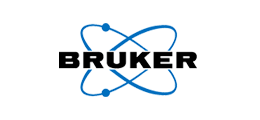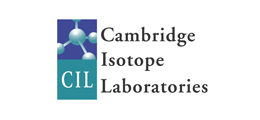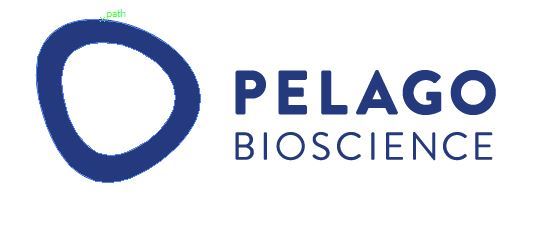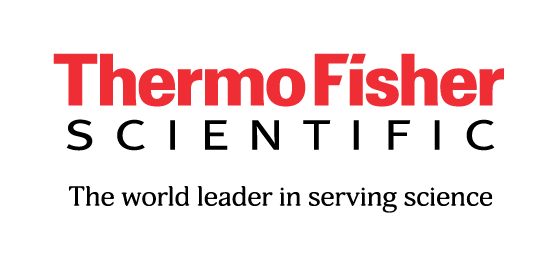The HUPO Education and Training Committee (ETC) was reorganized in April 2022, with a belief that dissemination and continuation of knowledge acquired over the years allows the next generation to gain the ability to become future leaders. The ETC assembles programs which include workshops, courses and tutorials that contribute to the professional growth and scientific awareness of HUPO members, fosters collaborations, leverages co-marketing of major events, empowers authors and new publishers and features quality education by translation of training materials.
Co-Chairs: Dr. Justyna Fert-Bober and Giuseppe Palmisano
Upcoming Events
HUPO ETC Webinar Series 3 - Michael Roehrl, Proteomics-Based Precision Medicine for the Benefits of Patients
24 September 2025 | More details and registration information at Human Proteome Organization (HUPO) - HUPO ETC Webinar Series – Dr. Michael Roehrl
Courses
DIA/SWATH and Targeted Proteomics Courses @ ETH Zurich
The Aebersold group at ETH Zurich hosted a number of courses focused Targeted Proteomics (2015-2016) and DIA/SWATH (2017-2018)
Video playlists: https://www.youtube.com/channel/UCLLENascNxL22j3pntI7jVA/playlists
May Institute @ Northeastern University
The Vitek group at Northeastern University host a yearly course on computational proteomics and statistics.
Course link: https://computationalproteomics.khoury.northeastern.edu/
Video playlists: https://www.youtube.com/c/MayInstituteNEU/playlists
Skyline Targeted Quantitative Mass Spec Course @ University of Washington
Course link: https://skyline.ms/labkey/project/home/software/Skyline/begin.view
Video playlists: https://www.youtube.com/channel/UCOdJj3Spesm_U_2-N_FT7wg/playlists
Skyline Webinars: https://skyline.ms/wiki/home/software/Skyline/page.view?name=webinars
MaxQuant Summer School @ MPI Biochemistry
Course link: https://maxquant.org/summer_school/
Video playlists: https://www.youtube.com/c/MaxQuantChannel/playlists
Single Cell Proteomics Conference (including workshop days) @ Northeastern
Course link: https://single-cell.net/
Video playlists: https://www.youtube.com/c/NikolaiSlavovResearch/playlists
Publications
Classic Papers and Tutorials:
Steen H, Mann M. The ABC's (and XYZ's) of peptide sequencing. Nat Rev Mol Cell Biol. 2004 Sep;5(9):699-711. doi: 10.1038/nrm1468. PMID: 15340378. Meier F, Park MA, Mann M. Trapped Ion Mobility Spectrometry and Parallel Accumulation-Serial Fragmentation in Proteomics. Mol Cell Proteomics. 2021;20:100138. doi: 10.1016/j.mcpro.2021.100138. Epub 2021 Aug 17. PMID: 34416385; PMCID: PMC8453224. Donnelly DP, Rawlins CM, DeHart CJ, Fornelli L, Schachner LF, Lin Z, Lippens JL, Aluri KC, Sarin R, Chen B, Lantz C, Jung W, Johnson KR, Koller A, Wolff JJ, Campuzano IDG, Auclair JR, Ivanov AR, Whitelegge JP, Paša-Tolić L, Chamot-Rooke J, Danis PO, Smith LM, Tsybin YO, Loo JA, Ge Y, Kelleher NL, Agar JN. Best practices and benchmarks for intact protein analysis for top-down mass spectrometry. Nat Methods. 2019 Jul;16(7):587-594. doi: 10.1038/s41592-019-0457-0. Epub 2019 Jun 27. PMID: 31249407; PMCID: PMC6719561. Catherman AD, Skinner OS, Kelleher NL. Top Down proteomics: facts and perspectives. Biochem Biophys Res Commun. 2014 Mar 21;445(4):683-93. doi: 10.1016/j.bbrc.2014.02.041. Epub 2014 Feb 17. PMID: 24556311; PMCID: PMC4103433. Tipton JD, Tran JC, Catherman AD, Ahlf DR, Durbin KR, Kelleher NL. Analysis of intact protein isoforms by mass spectrometry. J Biol Chem. 2011 Jul 22;286(29):25451-8. doi: 10.1074/jbc.R111.239442. Epub 2011 Jun 1. PMID: 21632550; PMCID: PMC3138281. Cox J, Hubner NC, Mann M. How much peptide sequence information is contained in ion trap tandem mass spectra? J Am Soc Mass Spectrom. 2008 Dec;19(12):1813-20. doi: 10.1016/j.jasms.2008.07.024. Epub 2008 Aug 7. PMID: 18757209. Cox J, Mann M. MaxQuant enables high peptide identification rates, individualized p.p.b.-range mass accuracies and proteome-wide protein quantification. Nat Biotechnol. 2008 Dec;26(12):1367-72. doi: 10.1038/nbt.1511. Epub 2008 Nov 30. PMID: 19029910. Breuker K, Jin M, Han X, Jiang H, McLafferty FW. Top-down identification and characterization of biomolecules by mass spectrometry. J Am Soc Mass Spectrom. 2008 Aug;19(8):1045-53. doi: 10.1016/j.jasms.2008.05.013. Epub 2008 May 28. PMID: 18571936; PMCID: PMC2538795. Smith LM, Kelleher NL; Consortium for Top Down Proteomics. Proteoform: a single term describing protein complexity. Nat Methods. 2013 Mar;10(3):186-7. doi: 10.1038/nmeth.2369. PMID: 23443629; PMCID: PMC4114032. McLafferty FW. A century of progress in molecular mass spectrometry. Annu Rev Anal Chem (Palo Alto Calif). 2011;4:1-22. doi: 10.1146/annurev-anchem-061010-114018. PMID: 21351881. Kelleher NL, Zubarev RA, Bush K, Furie B, Furie BC, McLafferty FW, Walsh CT. Localization of labile posttranslational modifications by electron capture dissociation: the case of gamma-carboxyglutamic acid. Anal Chem. 1999 Oct 1;71(19):4250-3. doi: 10.1021/ac990684x. PMID: 10517147. Čuklina J, Lee CH, Williams EG, Sajic T, Collins BC, Rodríguez Martínez M, Sharma VS, Wendt F, Goetze S, Keele GR, Wollscheid B, Aebersold R, Pedrioli PGA. Diagnostics and correction of batch effects in large-scale proteomic studies: a tutorial. Mol Syst Biol. 2021 Aug;17(8):e10240. doi: 10.15252/msb.202110240. PMID: 34432947; PMCID: PMC8447595. Ludwig C, Gillet L, Rosenberger G, Amon S, Collins BC, Aebersold R. Data-independent acquisition-based SWATH-MS for quantitative proteomics: a tutorial. Mol Syst Biol. 2018 Aug 13;14(8):e8126. doi: 10.15252/msb.20178126. PMID: 30104418; PMCID: PMC6088389. Sajic T, Liu Y, Aebersold R. Using data-independent, high-resolution mass spectrometry in protein biomarker research: perspectives and clinical applications. Proteomics Clin Appl. 2015 Apr;9(3-4):307-21. doi: 10.1002/prca.201400117. Epub 2015 Feb 23. PMID: 25504613. - Picotti P, Aebersold R. Selected reaction monitoring-based proteomics: workflows, potential, pitfalls and future directions. Nat Methods. 2012 May 30;9(6):555-66. doi: 10.1038/nmeth.2015. PMID: 22669653.
Schmidt A, Claassen M, Aebersold R. Directed mass spectrometry: towards hypothesis-driven proteomics. Curr Opin Chem Biol. 2009 Dec;13(5-6):510-7. doi: 10.1016/j.cbpa.2009.08.016. Epub 2009 Sep 21. PMID: 19775930. Gillet LC, Navarro P, Tate S, Röst H, Selevsek N, Reiter L, Bonner R, Aebersold R. Targeted data extraction of the MS/MS spectra generated by data-independent acquisition: a new concept for consistent and accurate proteome analysis. Mol Cell Proteomics. 2012 Jun;11(6):O111.016717. doi: 10.1074/mcp.O111.016717. Epub 2012 Jan 18. PMID: 22261725; PMCID: PMC3433915. Steen H, Jebanathirajah JA, Rush J, Morrice N, Kirschner MW. Phosphorylation analysis by mass spectrometry: myths, facts, and the consequences for qualitative and quantitative measurements. Mol Cell Proteomics. 2006 Jan;5(1):172-81. doi: 10.1074/mcp.M500135-MCP200. Epub 2005 Oct 4. PMID: 16204703. Dephoure N, Gould KL, Gygi SP, Kellogg DR. Mapping and analysis of phosphorylation sites: a quick guide for cell biologists. Mol Biol Cell. 2013 Mar;24(5):535-42. doi: 10.1091/mbc.E12-09-0677. PMID: 23447708; PMCID: PMC3583658. Eliuk S, Makarov A. Evolution of Orbitrap Mass Spectrometry Instrumentation. Annu Rev Anal Chem (Palo Alto Calif). 2015;8:61-80. doi: 10.1146/annurev-anchem-071114-040325. PMID: 26161972. Scigelova M, Hornshaw M, Giannakopulos A, Makarov A. Fourier transform mass spectrometry. Mol Cell Proteomics. 2011 Jul;10(7):M111.009431. doi: 10.1074/mcp.M111.009431. PMID: 21742802; PMCID: PMC3134075. Hu Q, Noll RJ, Li H, Makarov A, Hardman M, Graham Cooks R. The Orbitrap: a new mass spectrometer. J Mass Spectrom. 2005 Apr;40(4):430-43. doi: 10.1002/jms.856. PMID: 15838939. Syka JE, Coon JJ, Schroeder MJ, Shabanowitz J, Hunt DF. Peptide and protein sequence analysis by electron transfer dissociation mass spectrometry. Proc Natl Acad Sci U S A. 2004 Jun 29;101(26):9528-33. doi: 10.1073/pnas.0402700101. Epub 2004 Jun 21. PMID: 15210983; PMCID: PMC470779. Good DM, Wirtala M, McAlister GC, Coon JJ. Performance characteristics of electron transfer dissociation mass spectrometry. Mol Cell Proteomics. 2007 Nov;6(11):1942-51. doi: 10.1074/mcp.M700073-MCP200. Epub 2007 Aug 1. PMID: 17673454. Hunt DF, Buko AM, Ballard JM, Shabanowitz J, Giordani AB. Sequence analysis of polypeptides by collision activated dissociation on a triple quadrupole mass spectrometer. Biomed Mass Spectrom. 1981 Sep;8(9):397-408. doi: 10.1002/bms.1200080909. PMID: 7306675. Nesvizhskii AI, Keller A, Kolker E, Aebersold R. A statistical model for identifying proteins by tandem mass spectrometry. Anal Chem. 2003 Sep 1;75(17):4646-58. doi: 10.1021/ac0341261. PMID: 14632076. Keller A, Nesvizhskii AI, Kolker E, Aebersold R. Empirical statistical model to estimate the accuracy of peptide identifications made by MS/MS and database search. Anal Chem. 2002 Oct 15;74(20):5383-92. doi: 10.1021/ac025747h. PMID: 12403597. Nesvizhskii AI, Aebersold R. Interpretation of shotgun proteomic data: the protein inference problem. Mol Cell Proteomics. 2005 Oct;4(10):1419-40. doi: 10.1074/mcp.R500012-MCP200. Epub 2005 Jul 11. PMID: 16009968. Searle BC, Turner M, Nesvizhskii AI. Improving sensitivity by probabilistically combining results from multiple MS/MS search methodologies. J Proteome Res. 2008 Jan;7(1):245-53. doi: 10.1021/pr070540w. PMID: 18173222. Choi H, Ghosh D, Nesvizhskii AI. Statistical validation of peptide identifications in large-scale proteomics using the target-decoy database search strategy and flexible mixture modeling. J Proteome Res. 2008 Jan;7(1):286-92. doi: 10.1021/pr7006818. Epub 2007 Dec 14. PMID: 18078310.
| | |


.png)
















